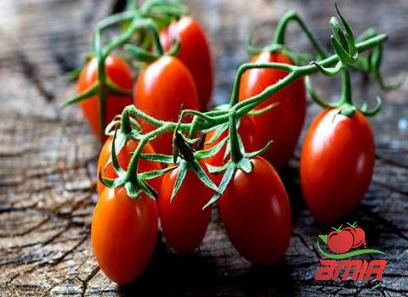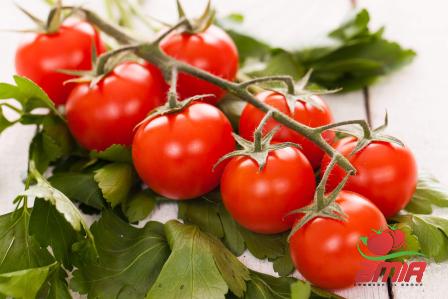The production of tomato products like paste or sauce in African countries like Ghana, Cameroon, Kenya, etc affects the local and international markets. Is much harder than in other countries because of the hot weather.
Nearly 50% of all jobs in Africa are in the agricultural sector, and 64% of the continent’s countries rely on it as their main economic activity (Africa Competitiveness Report, 2015).
However, the sector is currently characterized by a sizable percentage of smallholder farms (c.80%) that rely on rain to cultivate low-yield staple food crops and a declining GDP contribution, primarily due to little value addition and poor productivity.
Nearly 30% of Africa’s yield is lost after collection (approximately USD 4 billion). According to the World Economic Forum’s 2015 Africa Efficiency Report, the industry only contributes 15% to GDP.
The additional value of Sub-Saharan Africa’s GDP from agriculture is just 11% of the 30% GDP of ASEAN countries. Unfortunately, despite having a wealth of natural resources, Africa still spends about USD 25 billion annually on basic food items. However, this also highlights the stark economic difference between farming with added value and industrial agriculture.
A Study of Ghana’s Changing Structures
Over the past ten years, the service sector has gained ground on Ghana’s agricultural sector economically. Services are now receiving more resources, including labor, than agriculture and agriculture with added value.
Since the percentage of workers employed in agriculture fell from 62% in 1992 to 42% in 2010, it appears that the majority of the workforce is shifting from agriculture to the service sector rather than the producing sector.
As a result, the industrial to the service sectors have seen economic growth. The manufacturing sector’s share of GDP has increased at an average annual rate of 6.25 percent over the past six years, which has been fairly stable.
In 2014, manufacturing’s share of Ghana’s GDP was only 5.9%. The financial services industry lacks adequate funding, credit rates are too high, the necessary infrastructure is lacking, and businesses are overly dependent on imports. Energy costs and operating costs are also too high.
Due to its reliance on low-value primary sectors, the nation’s slow economic development is comparable to that of the rest of Africa. Signs include a lack of economic diversification, a scarcity of resources, and excessive income growth.

In contrast to the agriculture sector’s sharp decline in GDP over the past ten years (from 41.5% in 2004 to 19.9% in 2014), the contribution of the service sector has recently increased, accounting for 51.7% of GDP in 2014 (up from 49.2% in 2009).
Utilizing Ghana’s resources in manufacturing, where they belong, is the secret to the country’s long-term economic success. The economy is now more resistant to shifts in the price of commodities globally thanks to lower food imports.
Over the medium to long term, improved governance, enabling technology, a declining infrastructure deficit, and broad strategic initiatives aimed at promoting lending to the primary sector will change Ghana’s agriculture and the agro-processing market.
One initiative that aims to redirect labor flow back into agriculture and agroprocessing is the Youth in Agriculture Programme.
It is a component of a government initiative in Ghana’s agricultural sector to encourage young people to work in farming and/or food production for profit.
As smart capital pours into large-scale agriculture, we can anticipate a recovery in the agriculture and agro-processing sectors over the medium and long terms.
We believe that the size of the current networks for production, distribution, and consumption could be increased. If the agriculture and agroprocessing sectors implemented more straightforward management systems, they might achieve output levels that are close to ideal.
The best place to invest in agribusiness is Ghana.
Ghana is the easiest country in Africa to do business in despite its current energy problems, according to the World Bank’s 2016 Ease of Doing Business Report, which ranks it 11th out of 47 economies.
Ghana is expected to grow at rates of 5.9% and 8.2% in 2016 and 2017, respectively (compared to SSA’s 4.6%, the global average of 3.3%, and the world’s 3.3%).

A number of factors, such as increasing oil and gas production, private sector investment, improvements to the public infrastructure, progressive oversight and accountability, and good governance, support these optimistic projections.
If effective, enabling macroeconomic and sector-level policies are implemented and upheld, we project that the agricultural and agroprocessing sector will expand by +/- 2% of Ghana’s anticipated GDP growth.
The Ghanaian tomato processing industry is the main subject of this article, which aims to examine the benefits of enhancing the value of agricultural products. These elements make this market sector fascinating to study:
o To supply Ghana’s estimated annual consumption of over 100,000 metric tonnes of tomato paste, it costs more than $100 million;
If a year-round, easily accessible tomato processing plant was nearby, producers could make more than five times as much money.
Over 300,000 people sell and distribute tomatoes in Ghana, where 90,000 farmers grow them.
One of West Africa’s largest agricultural dams is located in Ghana, which also has excellent topographical and agroecological characteristics (the Tono Dam, situated in a tomato farming region, can be used to produce tomatoes all year round).
The Economic Environment
Views on the Global Economy
In terms of GDP, Ghana is the only country in West Africa behind Nigeria. The economy of the country has impressively expanded since commercial oil production began in 2011, with a high growth rate of 14.4 percent in that year. The second quarter of 2015 saw GDP in Ghana increase by 0.90 percent compared to the first.

Ghana’s GDP grew by 2.13 percent on average between 2006 and 2015, peaking at 8.10 percent in the first quarter of 2012.
The current energy crisis is to blame for the real GDP growth slowing from 4.0% in 2014 to 3.4% in 2015. Nevertheless, in addition to payments from development partners, Ghana anticipates a sizeable capital inflow of USD 1.5 billion by the end of 2015.
Ghana’s GDP has consistently increased over the last six years, averaging close to 8% per year. With respect to economic diversity in sub-Saharan Africa, this places Ghana in the middle.
Ghana has made significant progress toward achieving the Millennium Development Objective of halving the rate of poverty by 2015. From 52% in 1991 to 24% in 2013, the country’s poverty rate fell.
The real GDP growth rate is forecast to drop from 4% in 2014 to 3.4% in 2015 as a result of ongoing energy issues that have reduced economic output.
Ghana’s economy grew satisfactorily in 2014, but it was beset by issues, such as a sharp currency depreciation of over 30% in the first nine months of the year, an exacerbating power crisis, poor macroeconomic efficiency, elevated interest rates, and high inflation.
In June 2015, the economy proceeded to contract due to net capital outflows as well as global market volatility. By the end of June 2015, gross export revenues had decreased by USD 1.1 billion to USD 3.2 billion as a result.
If the power crisis is settled before the end of 2016 and the planned fiscal modification, supported by the IMF and other relevant stakeholders, remains on course and meets the 2017 goals, the annual growth in Ghana is predicted to recover to 5.9% in 2016 and 8.2% in 2017.
But in 2016, economic expansion might be hampered by the volatile oil prices on the global market. The World Bank’s optimistic and upbeat long-term economic outlook for Ghana nevertheless expresses confidence in the country’s future success.
The best tomato paste for export, of the highest quality and at the best price, is ready for preparation by our international business, and we’re prepared to enter into agreements with foreign customers.











Your comment submitted.